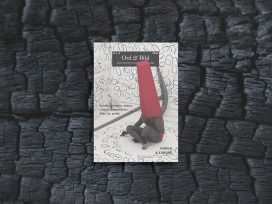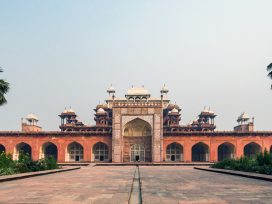Scholars who are critical and supportive of multiculturalism note how it is in “retreat” or in question in different countries as leading politicians are rejecting it. Britain is often cited as a place in which this retreat or questioning occurs. Certainly British politicians and commentators criticize multiculturalism, but it is often unclear what precisely is being criticized. Even when critics say that what they are discussing is “state multiculturalism”, nothing is said about what this is, or how it differs from “multiculturalism”, and neither is self-explanatory. We therefore begin by specifying three inter-related ways in which multiculturalism can be understood, before going on to show why it is questionable to claim that leading British politicians are distancing themselves from any of them. We then identify the superficial nature of what it is that these leading politicians are actually rejecting, and the benefit, even for critics, of adopting our understandings of multiculturalism.

Understandings of multiculturalism
Like equality, justice, fairness and class, multiculturalism can be conceived of in different ways, but we focus on three inter-related understandings of it. First, multiculturalism is often said to denote a culturally diverse citizenry, or what may be called a “multicultural society”. The latter seems inescapable as cultural diversity is in-eliminable “without an unacceptable level of coercion”, and perhaps not even then as regional or class based cultural differences would remain even if those based on immigration were removed. But a state can react to a culturally diverse citizenry in different ways. It could try to remain neutral between cultural groups and not favour any of them. But this is difficult, as the language, norms and sensibilities used to regulate the collective affairs of its citizens have to come from somewhere and are usually the cultural traits of at least one group. Instead a state could try to assimilate cultural minorities by aiming to make them as indistinguishable from the cultural majority as possible. If assimilation is voluntary, or as a state aim it is restricted to obviously morally repugnant practices, it is usually uncontroversial. But if it goes further it infringes individual freedom, and creates or reinforces a hierarchy among citizens by encouraging some to conform to others even though each is meant to be equal. For such reasons, Canada, Britain and Australia abandoned policies of assimilation in the 1960s; formal and informal policies of multiculturalism then followed; and thus a second way to understand multiculturalism emerged. A policy of multiculturalism usually aims to reduce fear of cultural difference, as well as the inequality, exclusion and disadvantage that are often experienced by cultural minorities in subtle yet significant ways. For example, when the state uses the language, norms and sensibilities of the cultural majority in its political institutions, or establishes only their religion in them or teaches only their history in schools, cultural minorities are excluded and treated unequally, despite being citizens who are entitled to equal treatment. Similarly, if public services are offered only in the lingua franca, citizens who are less proficient with the language – like recent immigrants or older cultural minorities – are disadvantaged, as these services are more difficult for them to use than they are for other citizens. Multicultural education in schools and promoting race equality are thus used to reduce fear of cultural difference, while anti-discrimination laws, legal exemptions for minority religious practices, providing public services in different languages and other measures are used to reduce the inequality, exclusion and disadvantage that cultural minorities suffer. Different combinations of such measures have been called a policy of multiculturalism in different countries, but if fear of cultural difference reduces, along with the inequality, exclusion and disadvantage cultural minorities incur, the nation will change, and it is unclear what it will become or how to sustain a political commitment to such change. Multiculturalism in a third sense of what some call an “ideology” thus emerges. This ideology on close inspection is often a “vision for the nation” that explains how the nation is changing and will continue to change, and helps to foster a commitment to the trajectory the nation is on. Such a vision for the nation was offered by the Commission for Multi-Ethnic Britain; and different policies of multiculturalism in different countries have also offered similar visions. Yet this “vision for the nation” is the least well understood way of thinking about multiculturalism, partly because it is the most complex. So we will now spend some time explaining it.
Typically the entities we call nations have features like a homeland, language, history, traditions, symbols and legal and political institutions. Such features constitute a nation’s identity because they collectively make it what it is; hence if asked what Britain, France or Germany are, our answers invoke such features, and if these features change we think the nation has too. But members of a nation are also often said to have common features and this does not necessarily mean that they are ethnically similar; in many nations, like Switzerland, Canada and India, they are not. Yet members of a nation often have common features in a different sense of believing that features of their nation – like its homeland, history, traditions and so on – are theirs. They do so because they have a sense of what their nation’s identity is which we often call their national identities; and such identities are shared with others not as we share a cake by dividing it, but as two or more people share an opinion or a view. Indeed, a nation’s identity and people’s sense of it are related, as changes to the former tend to destabilize the latter. Thus as Britain’s imperial, military and economic might were disappearing, debates began to emerge not only about what Britain was becoming but also about what it meant to be British.
In a vision for the nation, then, a nation has an identity and people have a sense of it, but both the former and the latter can be disturbed by globalisation, minority-nationalism, supra-national institutions and so on. Multiculturalism in the first sense of the emergence of a culturally diverse citizenry is another such disturbance, as those with a sense of what the nation is note that their homeland is now also home to others, and that features of the nation, like its legal and political institutions, affect many citizens who do not see them as theirs. Thus features of the nation that once exclusively belonged to the majority are now shared, and the widespread affinity for them that could once be assumed can now no longer be; and so, understandably, people’s sense of their nation’s identity is disturbed. But if cultural minorities are citizens this disturbance is necessary, as they are more likely to be treated unequally if they are seen as outsiders and not as part of the nation. Similarly, as the cultural majority’s language, norms and values are usually present in features of the nation all citizens are supposed to be equal in, like legal and political institutions, but those of cultural minorities are not, the latter are treated unequally. Short of abandoning a commitment to equal treatment and citizenship, multiculturalism in our first sense helps to force a re-examination of the features that comprise a nation’s identity and people’s sense of it; but it also makes both of these more important. After all, a culturally diverse citizenry is also more susceptible to division, competition and conflict between cultural groups. A nation’s identity is thus important, as people’s sense of it will convey to them that, despite their differences, they share a homeland, history, language, traditions, institutions, symbols and other features that make them, inter alia, a group. This helps them to take collective action, accept collectively binding decisions and conceive a common good. Contrary then to what various critics claim, multiculturalists have long acknowledged the importance of a nation’s identity and people’s sense of it, but they also note how both can come to include cultural minorities as they do change.
Hence Britain’s identity today differs from what it was a century ago, as do people’s British identities, and the measures within a policy of multiculturalism that are described above help over time to make such changes. Anti-discrimination measures and legal exemptions for minority religious practices help to make features of the nation like legal and political institutions more inclusive, as does these institutions promoting race equality and delivering public services in different languages. As features of the nation become more inclusive, so, by definition, does its identity. But these more inclusive legal and political institutions over time also help shape people’s sense of what the nation is, as does multicultural education in schools, which shows children why different groups comprise the nation, shape its history and nature, and call it “home”. Some may resist this education, but if it is taught throughout their school lives and to successive generations, some may not. Policies of multiculturalism are thus a means to help make a nation’s identity and people’s sense of it more inclusive over time – but not wholly different. If features of the nation that the cultural majority believe to be theirs were to change completely, the sense of loss that follows could prevent an affinity for what the nation has become, and could cause a backlash against minorities. But it is also impossible for a nation’s identity and people’s sense of it to become wholly different, as both remain strongly conditioned by their starting points of the existing nation’s identity and people’s existing senses of it – both of which, as noted above, the cultural majority are usually favoured in. Hence the Swann Report said:
we are not seeking to fit ethnic minorities into a mould which was originally cast for a society, relatively homogenous […] nor to break this mould completely and replace it with one which is in all senses foreign […] We are instead looking to recast the mould into a form which retains the fundamental principles of the original, but within a broader pluralist conspectus.
What is envisaged, then, is more inclusive versions of the existing nation’s identity, and people’s existing sense of it – versions that are worthy of commitment as they include the cultural majority and cultural minorities.
This “vision for the nation” thus explains that multiculturalism in our first sense is one of many factors that can disturb a nation’s identity and people’s sense of it, but this is necessary and it also makes both more important; while multiculturalism in our second sense of a policy helps to make both more inclusive though not unrecognisable. These three understandings of multiculturalism are thus interrelated as they help one another to emerge, and each relates to a nation’s identity and people’s sense of it. But is it plausible to claim that leading British politicians are rejecting multiculturalism in any of these senses?
Where’s the retreat?
We accept that multiculturalism is criticized frequently by leading politicians. But few of them claim that a culturally diverse citizenry is problematic, and many of them explicitly endorse the latter. Indeed, when even groups like the English Defence League make gestures towards welcoming a culturally diverse citizenry, it shows just how hard it is to disagree publicly with this understanding of multiculturalism. But David Cameron criticized “state multiculturalism” in 2011, and this suggests that it may be the policy that is unpopular. Certainly scholars who identify a “retreat” in Britain focus on such a policy. But the most prominent scholar to do so has resiled from this position; and this is not surprising as it is difficult to identify the multiculturalist measures and budgets that have been cut. Legal exemptions for minority religious practices remain, as do anti-discrimination measures. The aims of multicultural education remain in the English education curriculum. It is unclear whether or not race equality is promoted less than it once was, or whether public services are no longer delivered in different languages. Certainly the latter has been criticised. But there is no country-wide evidence to suggest that these two measures are less prevalent than before; and even if it is the case that some local authorities are no longer offering public services in different languages, the retreat of one measure among many does not logically indicate the retreat of an entire policy, especially since other measures – like anti-discrimination laws and minority faith schools – have actually increased since 2001.
But supporters and critics of multiculturalism have suggested that it has retreated as a policy since the 2001 riots and 9/11 because the priority has been fostering “community cohesion”. However, compared to cutting measures and budgets, fostering community cohesion is at best an inexact indicator of any retreat, and for it to be a plausible indicator at all it must conflict with a policy of multiculturalism and it is unclear why it does. This is partly because community cohesion is a notoriously vague idea that those suggesting such a conflict fail to clarify – and we too cannot here systematically explore what it denotes. But as community members are not literally stuck together, “community cohesion” is a metaphor that would appear to describe what the report introducing the term called “helping micro-communities to gel or mesh into an integrated whole”. The reference to “micro-communities” suggests that this “gelling” or “meshing” focuses on a local level, but the “integrated whole” can also be national. Hence the report also said while there could be no return to “a dominant or mono-culturalist view of nationality”, there must be agreement on “some common elements of nationhood” (18-19). The aim here appears to be for different communities to possess some commonalities and feel like a united group; and as a policy of multiculturalism helps to make, as we have seen, nationhood more inclusive, so that more can be part of this group, it is difficult to see a conflict. But some might argue that a policy of multiculturalism prevents local communities from feeling like a group by dividing them residentially. However, it seems a strange claim that measures like anti-discrimination legislation, legal exemptions for minority religious practices and so on foster residential separation, especially as research suggests that poverty, higher birth rates among some groups and higher mortality rates among others are the drivers. In short, fostering community cohesion cannot easily be used even as an inexact indicator of a retreating policy of multiculturalism, for the simple reason that it is unclear why the two necessarily conflict.
But perhaps leading politicians are now less inclined to advocate multiculturalism when it takes the form of a “vision for the nation”? Certainly there are many such visions, but recall that in this one it is crucial that a nation’s identity and people’s sense of it become more inclusive. A pertinent indicator, then, would be examining whether leading politicians are less inclined to advocate making Britain’s identity, people’s British identities, or what for brevity can be called “Britishness”, more inclusive. Multiculturalists first talked about this goal in 1974; and the 1985 Swann Report into the education of ethnic minority children also emphasised this goal, as did other leading multiculturalists after the Rushdie Affair. Doing so has seemingly influenced liberal nationalists like David Miller, who by the 1990s came to advocate making Britishness more inclusive. But this goal seemed unpopular among leading politicians as late as 2000; when the Commission for Multi-Ethnic Britain argued in their report, amongst other things, that “political leaders should […] lead the country in re-imagining Britain […] and in ensuring the national story is inclusive”, it was attacked in the media. Home Secretary Jack Straw said he disagreed with part of the report partly because in his view Britishness had already become more inclusive. At this time William Hague was also suggesting in speeches that Britishness had already become more inclusive, and, like leading Labour figures, did not mention aiding this process. Making “Britishness” more inclusive was seemingly not something leading politicians would advocate even in 2000 – but they do now.
Thus the last Labour government led a debate about Britishness, and introduced measures aimed at those whose British identities are most malleable i.e. children and immigrants who want to become citizens. During citizenship ceremonies new citizens now pledge allegiance to the political features of Britain which were also equated with being British in a pamphlet that many of them were assessed on. Children now also learn about “the changing nature of UK society, including the diversity of ideas, beliefs, cultures, identities, traditions, perspectives and values that are shared”. By equating Britishness with Britain’s political features and its
diversity, the Labour government were promoting what we have called elsewhere a civic multicultural national identity. Civic nationhood seems inclusive because the political features defining the nation can be shared regardless of ethnicity; but there was also the multicultural component where Britain is defined not just by its multi-ethnic mix but also by the way it has historically accommodated difference and is doing so today. Indeed John Denham noted: “While a modern British identity will […] draw heavily on the history of the White British majority, we cannot discover Britishness in that history alone; it will have to draw on the histories of all those who now make up our country”. Such claims are not restricted to Labour politicians as similar ones are now being made by Education Secretary, Michael Gove, who has discussed Britishness in civic terms, but also in 2009 said “Britishness is about a mongrel identity”. There is, again, then, a multicultural component to this Britishness; in opposition Pauline Neville Jones, a figure regarded as being on the right of the Conservative Party, led a review group which argued: “we need to rebuild Britishness in ways which […] allow us to understand the contributions which all traditions, whether primarily ethnic or national, have made and are making to our collective identity”. And in his 2011 Munich speech, Cameron criticised “state multiculturalism”, but also advocated “a […] national identity that is open to everyone“. Where Thatcher and Major discussed preserving traditional forms of Britishness, their successors emphasise the inclusivity of its civic and multicultural components, and, like leading Labour figures, seem more keen to make Britishness more inclusive than their predecessors even in 2000. So not only is it difficult to plausibly argue that multiculturalism has retreated if it is understood as referring to a culturally diverse citizenry or to a policy; it has also seemingly advanced when understood as a vision for the nation.
Conclusion
It seems implausible, then, that leading politicians are distancing themselves from these three inter-related understandings of multiculturalism. But what if the retreat is from a different understanding of multiculturalism that denotes promoting separation and division? This understanding reflects a broader climate of opinion in which commentators and even some scholars claim that multiculturalism is divisive, and can sometimes add that it also forces people into separate groups. Yet it is unclear who or what is promoting this separation and division as no evidence of multiculturalist ideas or measures that do so are offered. Certainly multiculturalists focus on groups, but this is not because members of such groups share all the same traits; rather it is because they share a range of different one such that they can be conceived as or they self-identify as, inter alia, a group. This is different from forcing or inadvertently coercing group membership or indeed from proving that multiculturalist measures do either. Further, multiculturalists have long rejected separation and division; hence they identify how unity and belonging can be fostered among all citizens. Finally, policies of multiculturalism in different countries have been used to promote such unity; and have not inadvertently caused phenomena like residential separation in the UK, because, as noted above, there are other drivers for such separation. This understanding of multiculturalism as promoting division thus seems unrelated to what multiculturalists claim, what policies of multiculturalism aim for, and the available evidence of their impact. It is, then, a caricature, but it functions like a stereotype as it is intuitively appealing and thus widely believed, but is also pejorative and an inaccurate depiction of what it claims to relate to. And the more leading politicians and others assert this understanding, the more they help to normalise the climate of opinion it reflects and shapes. But this understanding cannot be asserted plausibly without explaining why its inaccuracy is irrelevant. And if this is what leading British politicians are retreating from, then they are rejecting an inaccurate understanding of multiculturalism, while endorsing or remaining silent about more accurate understandings of it.
Of course, rejecting this caricature can be deliberate or not. Some, like Will Kymlicka, suspect international organisations like UNESCO are “aware they are presenting a caricature”, and argue that “to preserve the commitment to diversity” they “need to drop the poisoned term of multiculturalism”. But this in turn reveals another possibility: that it may just be the word “multiculturalism” that leading politicians are objecting to. As one former MP recently said at an event we participated in, “multiculturalism is a boo word”; politicians thus may be unsure what they mean by it, but they know politically they have to oppose it. But if leading politicians are rejecting an inaccurate understanding of multiculturalism, or indeed just the word itself, their complaint is superficial as it does not reach more accurate understandings of multiculturalism.
Such hostility may nonetheless corrode political support for the more accurate understandings. But this is not inevitable. After all, leading British politicians have exhibited hostility to multiculturalism since the 2001 riots and 9/11, but since then they have also passed multiculturalist measures such as the Incitement to Religious Hatred Act and certain public duties attached to the Equalities Act. Likewise, the Canadian policy of multiculturalism was criticised strongly even after the 1988 Multiculturalism Act was passed, and its measures were subject to large budgetary cuts in the 1990s. But today it remains popular; the measures that comprise it were retained and are among the most advanced multiculturalist measures in the world. Similarly, the Australian policy of multiculturalism was exposed to the same kind of criticism in the 1990s, but the Gillard government has renewed its commitment to it. Hostility to a caricature of multiculturalism may corrode political support for its more accurate understandings but the unofficial British policy and the official Canadian and Australian policies have been resilient and durable despite such hostility.
But beyond politicians, other prominent critics of multiculturalism would also seemingly not object to all of our understandings of multiculturalism. Some of them might agree that the rate of future immigration should be reduced. But few of these prominent critics now reject a multicultural citizenry, as they recognise, as we say above, that it is inescapable without an unacceptable level of coercion, and, like leading politicians, they now also publicly advocate what multiculturalists began to in 1974, namely “Britishness” being more inclusive. Thus when such critics talk about ensuring “everyone can see something of themselves” in the nation, they are unknowingly advocating an idea that originates with multiculturalists. Yet even the most thought provoking of these critics assumes that a policy of multiculturalism is divisive despite the above evidence and arguments to the contrary; and it is thus multiculturalism as a policy that they seemingly object to. We have seen, however, that such a policy helps to make a nation’s identity and people’s sense of it more inclusive; thus the understanding of multiculturalism such critics object to, when accurately understood, helps to achieve the inclusive nations that they themselves espouse. Even such prominent critics then can gain both from reconsidering the understanding of multiculturalism that they reject, and – along with leading politicians – considering what exactly it is they are objecting to.







